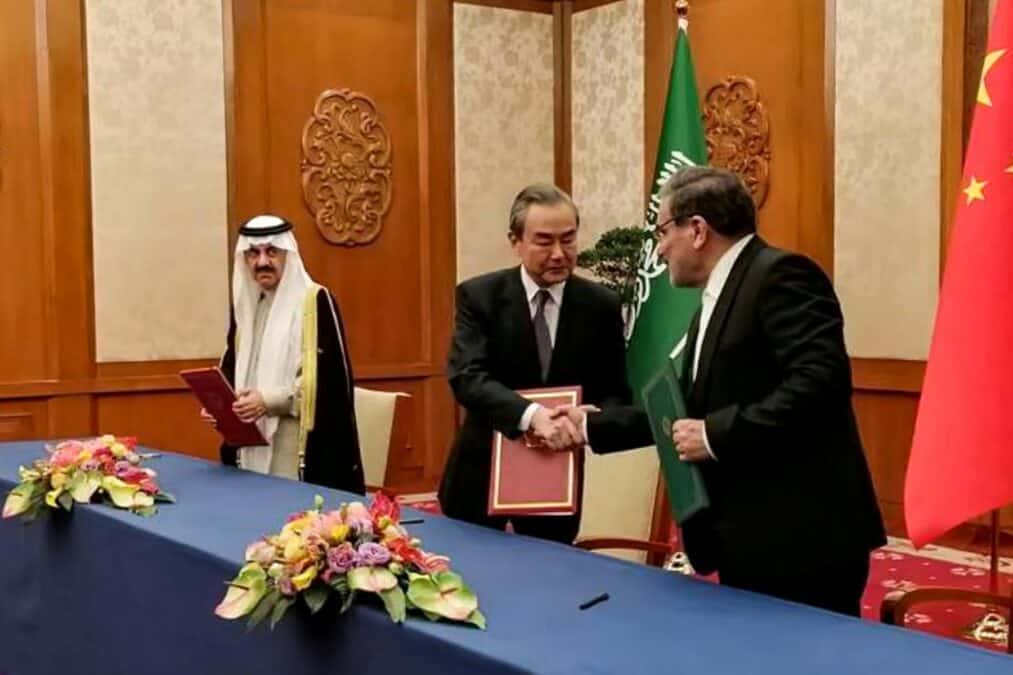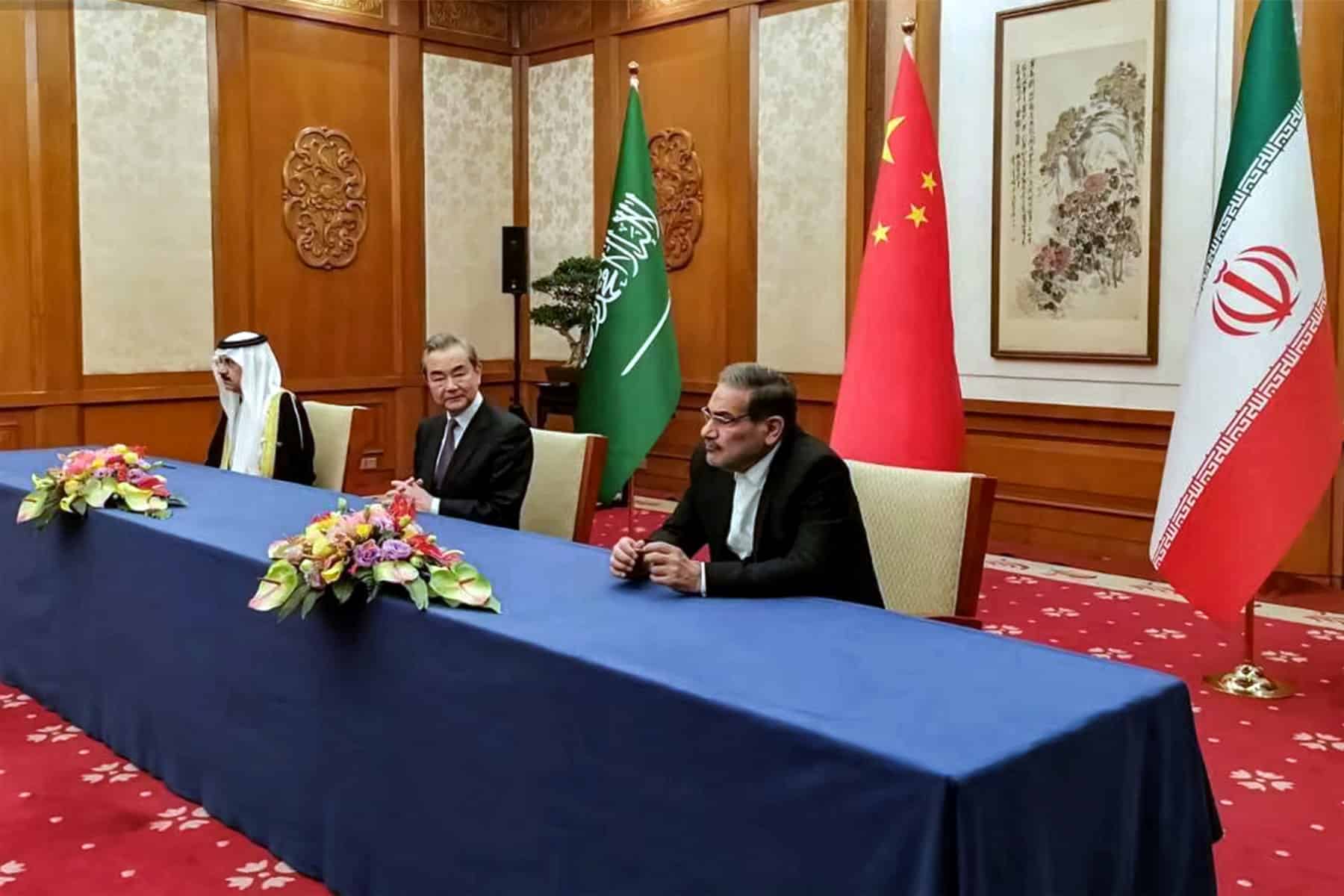The rapprochement between Saudi Arabia and Iran, two Middle East powerhouses, mediated by China, is a significant geopolitical event that has the ability to halt the escalating rivalries in a region torn by numerous crises.
The two countries announced the restoration of their ties a day after US Defence Secretary Lloyd Austin’s much-hyped trip to the region came to end. Austin visited Jordan, Iraq, Egypt and Israel to shore up US standing and support in view of the growing China-Russia interest and outreach to the Gulf states and also to reassure Arab allies against a rising Iranian threat.
But the surprise Saudi-Iran detente has gone against the drift of Austin’s visit largely premised on an abiding rivalry between the two countries. And that China midwifed it is likely to make the US uneasy about the communist giant’s growing clout in the region.
“The fact that China brokered the deal is significant,” Dr Annelle Sheline, a Middle East Fellow at Quincy Institute, remarked on microblogging site Twitter. “It shows the role that China could play in fostering a Middle East defined more by cooperation and trade and less by conflict and weapons sales as has been the norm under US dominance.”
Also Read: Iran, Saudi agree to restore severed ties after talks in China
Mohammed Soliman, a fellow at Middle East Institute, explains the Saudi-Iran normalization deal as one more twist in the US-China competition in the region.
“China’s economic prosperity is tied to energy imports from the Gulf. Brokering a deal with Saudi Arabia and Iran that could de-escalate regional tensions is a direct Chinese interest,” Soliman tweeted. “The deal symbolizes a strategic dilemma: Without a US-based security architecture, China will be able to fill the gaps left by the US. As Washington pivots to the #IndoPacific, China is pivoting East to fill Washington’s gaps (sic).”
Iran and Saudi Arabia said in a trilateral statement that they will reopen their embassies and missions within two months and put into effect agreements for economic and security cooperation made more than 20 years ago.

Saudi Arabia cut ties with Tehran after Iranian protesters attacked Saudi diplomatic missions following the Saudi execution of revered Shiite cleric Nimr al-Nimr in 2016.
“Following talks, the Islamic Republic of Iran and the Kingdom of Saudi Arabia have agreed to resume diplomatic relations and reopen embassies and missions within two months,” said the joint statement, which was published by both countries’ official media.
Iran’s Foreign Minister Hossein Amir-Abdollahian welcomed the agreement and said Tehran will “actively prepare other regional initiatives”.
“The return to normal relations between Tehran and Riyadh offers great opportunities to the two countries, the region and the Muslim world,” he tweeted.
His Saudi counterpart Prince Faisal bin Farhan Al Saud said the agreement stems from the kingdom’s preference for “political solutions and dialogue.”
The White House also welcomed the deal, but said it remains to be seen whether the Iranians will “meet their obligations”.
Hassan Nasrallah, the head of Lebanon’s Hezbollah, an Iran-backed militant group, called the agreement a “good development”.
“It could open new horizons in the region,” said Nasrallah whose movement has been blacklisted by Saudi Arabia since 2016. .
Significantly, the Saudi-Iran normalization follows Abrahamic Accords of recent years whereby the United Arab Emirates, and Bahrain established diplomatic relations with Israel, mediated by the United States. Ever since, there has been talk of the Saudi-Israel accord along similar lines.
Will Saudi-Iran deal affect the prospect of the rapproachment between Riyadh and Tel Aviv? It is premature to answer this question. But according to a senior Israeli official who was quoted on Friday, Israel’s bid to normalize ties with Saudi Arabia will not be hurt by Riyadh’s deal with Iran.
There has, however, been no official response from the Israeli government on the Chinese-brokered restoration of ties.








